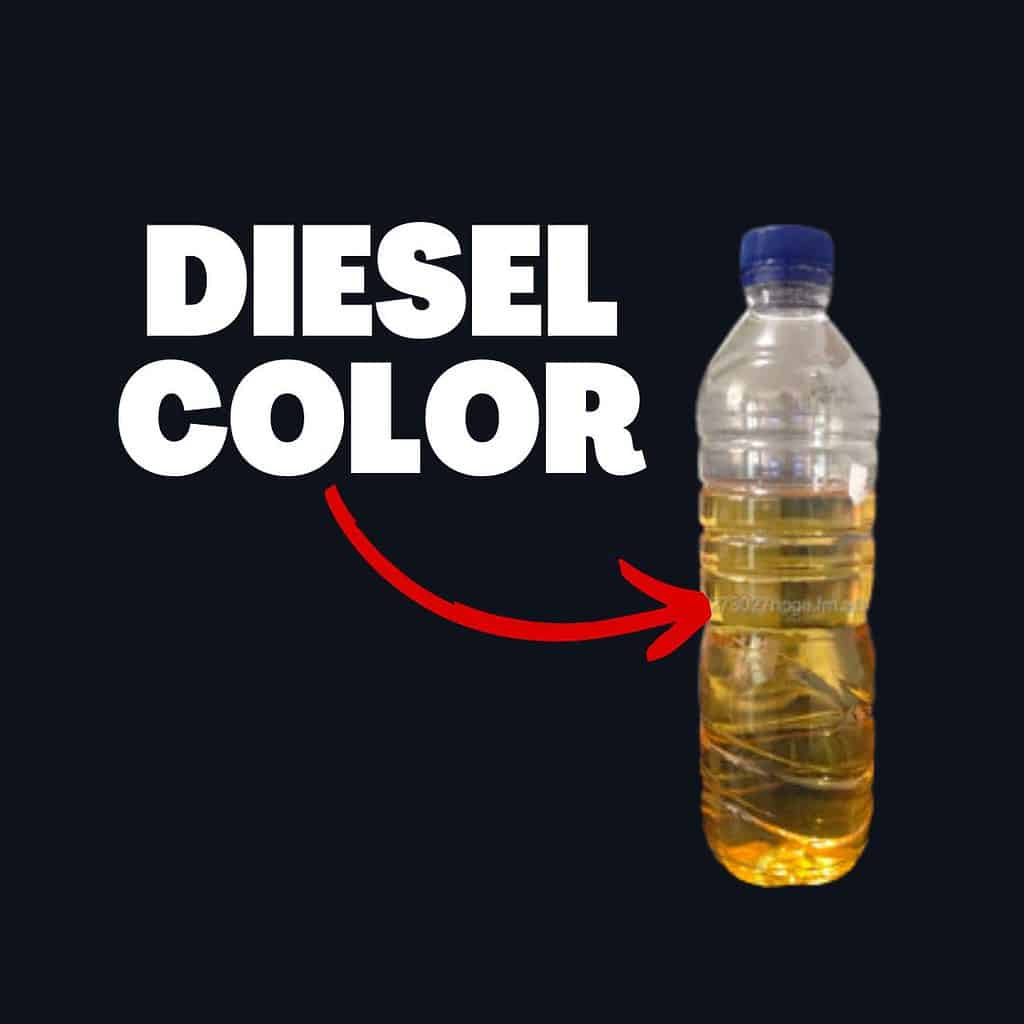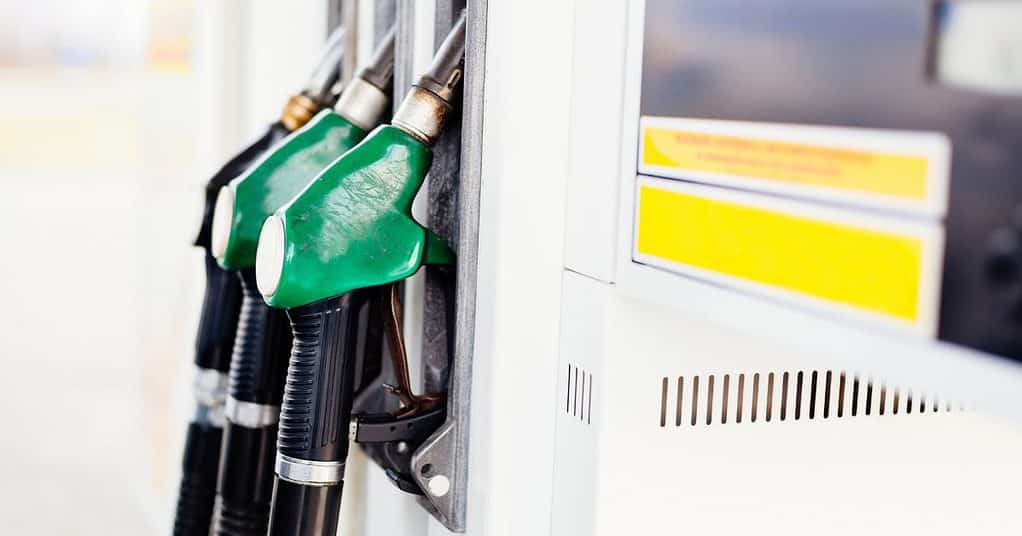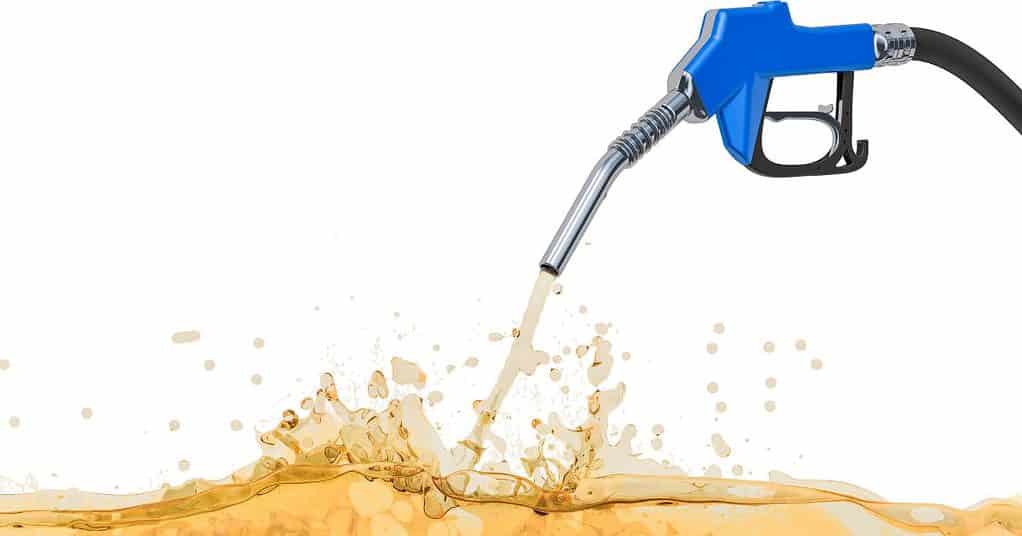Diesel color, Smell, Risks: Here’s How To ID Diesel Fuel vs. Gasoline!
Identifying diesel fuel versus gasoline is important for anyone who owns a vehicle or handles these fuels regularly. Whether you are filling up at the gas station or working with these fuels in a professional capacity, it is important to know the difference between diesel fuel and gasoline so you can use the correct fuel for your vehicle or equipment.
In this article, we will take a closer look at the differences between diesel fuel and gasoline, including their appearance, smell, and other characteristics, to help you identify which fuel is which.
Diesel color: Here’s what diesel fuel looks like compared to Gasoline
Diesel fuel and gasoline are both clear, straw-colored liquids. However, there are a few subtle differences between the two fuels that you might be able to see if you look closely.
One difference is that diesel fuel is usually a little thicker and more viscous than gasoline. This is because diesel fuel has a higher flash point, which means it needs more heat to ignite. Diesel fuel also has a higher density than gasoline, which means it weighs more per unit of volume.

Another difference between diesel fuel and gasoline is the color. Diesel fuel can range in color from almost clear to a very light amber, while gasoline is typically a little more yellow in color. However, these differences in color are usually not very noticeable, and you would need to hold the two fuels side by side to really see the difference.
Overall, the main difference between diesel fuel and gasoline is the way they are used to power engines. Diesel fuel is used to power diesel engines, while gasoline is used to power gasoline engines. Both fuels have their own specific characteristics and properties that make them well-suited for their intended use.
Does Diesel Smell Different Than Gas?
Yes, diesel fuel does have a distinct smell that is different from gasoline. Diesel fuel has a more pungent, earthy smell that is often described as being similar to rubber or asphalt. This smell is caused by the hydrocarbons and other compounds that are present in diesel fuel.
Gasoline, on the other hand, has a more sweet, aromatic smell that is often described as being similar to flowers or fruit. This smell is caused by the aromatic hydrocarbons and other compounds that are present in gasoline.
While the smells of diesel fuel and gasoline are quite different, it can be difficult to distinguish between the two by smell alone, especially if you are not familiar with the characteristic smells of each fuel. In general, it is best to rely on other methods, such as the color or viscosity of the fuel, to determine whether you are dealing with diesel fuel or gasoline.

How do you identify diesel?
There are a few different ways to identify diesel fuel:
- Look for the label: Most diesel fuel is labeled as such, so you can usually identify it by looking for a label that says “diesel” or “diesel fuel.”
- Check the color: Diesel fuel is typically a little thicker and more viscous than gasoline, and it can range in color from almost clear to a very light amber. Gasoline is typically a little more yellow in color.
- Smell the fuel: Diesel fuel has a more pungent, earthy smell that is often described as being similar to rubber or asphalt. Gasoline has a more sweet, aromatic smell that is often described as being similar to flowers or fruit.
- Check the flash point: Diesel fuel has a higher flash point than gasoline, which means it needs more heat to ignite. You can use this as a way to differentiate between the two fuels.
- Check the density: Diesel fuel is denser than gasoline, so it weighs more per unit of volume. You can use a scale to measure the weight of a given volume of fuel to determine whether it is diesel or gasoline.
Overall, it is best to use a combination of these methods to accurately identify diesel fuel.
Does Diesel Smell Different Than Gas?
Yes, diesel fuel does have a distinct smell that is different from gasoline. Diesel fuel has a more pungent, earthy smell that is often described as being similar to rubber or asphalt. This smell is caused by the hydrocarbons and other compounds that are present in diesel fuel.
Gasoline, on the other hand, has a more sweet, aromatic smell that is often described as being similar to flowers or fruit. This smell is caused by the aromatic hydrocarbons and other compounds that are present in gasoline.
While the smells of diesel fuel and gasoline are quite different, it can be difficult to distinguish between the two by smell alone, especially if you are not familiar with the characteristic smells of each fuel. In general, it is best to rely on other methods, such as the color or viscosity of the fuel, to determine whether you are dealing with diesel fuel or gasoline.
What Happens If I Accidentally Put Diesel In My Car?
Accidentally putting diesel fuel in a gasoline engine can be a serious problem, as diesel fuel is not suitable for use in gasoline engines and can cause damage if used in this way. If you accidentally put diesel fuel in your car, you should not start the engine and should seek professional assistance as soon as possible.
If you do start the engine after putting diesel fuel in a gasoline engine, you may notice that the car runs poorly or not at all. The engine may also make strange noises or emit white or gray smoke from the exhaust. These are all signs that the fuel is not being burned properly and that the engine is not operating as it should.
If you continue to drive the car with diesel fuel in the gasoline engine, you may cause damage to the engine, fuel system, and other components. This damage can be expensive to repair and may even result in the need to replace the engine.
To avoid these problems, it is important to make sure you are using the correct fuel for your vehicle. If you are unsure which fuel to use, you can check the owner’s manual or consult with a mechanic.

Can diesel smell harm you?
The smell of diesel fuel itself is not harmful to your health, as it is a complex mixture of hydrocarbons and other compounds that are not toxic when inhaled. However, inhaling large amounts of diesel fuel vapors or inhaling the vapors over an extended period of time could potentially be harmful to your health.
Exposure to high levels of diesel fuel vapors can irritate the eyes, nose, and throat and cause headaches, dizziness, and nausea. Inhaling diesel fuel vapors over an extended period of time can also damage the central nervous system and cause damage to the liver and kidneys.
In addition to the potential health risks of inhaling diesel fuel vapors, spills or leaks of diesel fuel can also be harmful to the environment. Diesel fuel can contaminate soil and water resources and harm plants and wildlife if it is not properly contained and cleaned up.
Overall, it is important to handle diesel fuel with caution and to avoid inhaling large amounts of the vapors. If you do come into contact with diesel fuel or are exposed to the vapors, it is a good idea to ventilate the area and wash your hands and any exposed skin thoroughly with soap and water.
If you experience any adverse health effects after coming into contact with diesel fuel, you should seek medical attention as soon as possible.
Can you mix diesel and gas?
It is generally not recommended to mix diesel fuel and gasoline, as the two fuels are not compatible and mixing them can cause problems.
Diesel fuel is designed to be used in diesel engines, while gasoline is designed to be used in gasoline engines. The two fuels have different chemical properties and are not suitable for use in the opposite type of engine.
If you mix diesel fuel and gasoline, the fuel mixture may not burn properly, which can lead to engine damage and other problems. The fuel mixture may also cause the engine to run poorly or not run at all, as the fuel is not being burned efficiently.
In addition to the potential for engine damage, mixing diesel fuel and gasoline can also cause problems with the fuel system and other components of the vehicle. The fuel mixture may cause clogs or other issues with the fuel lines, fuel pump, and other parts of the fuel system, which can be expensive to repair.
Overall, it is best to avoid mixing diesel fuel and gasoline and to use the correct fuel for your vehicle to ensure that it runs smoothly and efficiently. If you are unsure which fuel to use, you can check the owner’s manual or consult with a mechanic.
